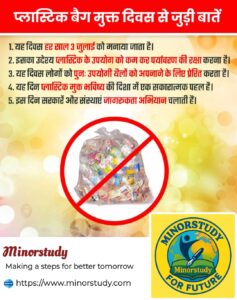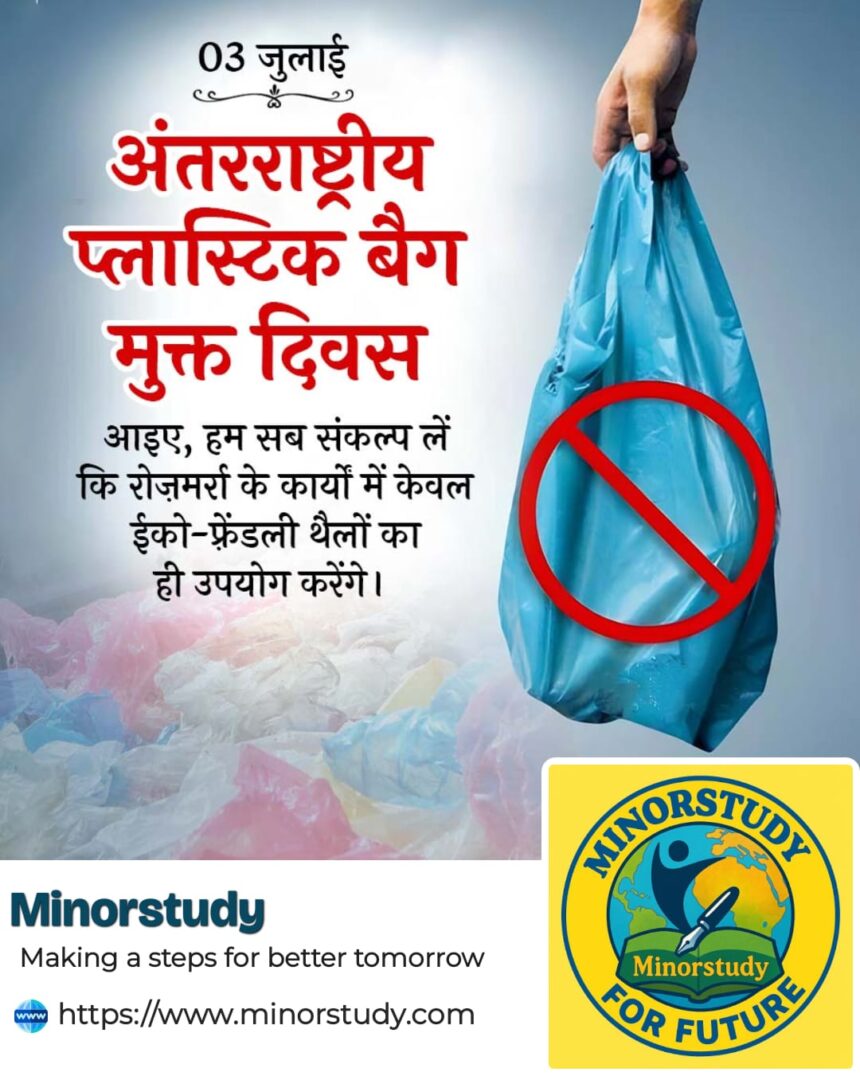7 Powerful Reasons Why International Plastic Bag Free Day Matters – A Bold Step Towards a Greener Planet
“What we throw away doesn’t go away.”
International Plastic Bag Free Day: Plastic bags, once hailed as a convenience, have become one of the most persistent environmental threats in modern times. International Plastic Bag Free Day is not just a day—it’s a wake-up call for individuals, communities, and nations to say no to single-use plastics and yes to a cleaner, sustainable planet.
- 🌍 What is International Plastic Bag Free Day?
- 📜 History of International Plastic Bag Free Day
- 📊 Shocking Facts About Plastic Bags
- 📅 Timeline of Key Milestones
- 💡 Significance of the Day
- 🙋 Frequently Asked Questions (FAQs)
- ❓ Why is plastic so harmful?
- ❓ Can one person really make a difference?
- ❓ What alternatives are best?
- ❓ Are all countries participating in this observance?
- ❓ What’s the future of plastic bags?
- 🎉 How is International Plastic Bag Free Day Observed?
- 💌 Wishing Messages You Can Share
- 🔑 Important Points Summary
- 🌈 Importance in Our Life and Society
- 🧭 Conclusion: A Day That Challenges the Norm & Inspires Hope
In this article, we dive into the history, facts, FAQs, timeline, significance, daily life impact, and global observance of this crucial day. Written in a human-centered tone, this piece aims to inspire real action by painting both the beauty of what’s possible—and the consequences of inaction.
🌍 What is International Plastic Bag Free Day?
International Plastic Bag Free Day is observed every year on July 3rd to raise awareness about the environmental impact of single-use plastic bags and promote sustainable alternatives like cloth, jute, or paper bags.
It’s not just about refusing plastic bags for one day. It’s a global movement that encourages long-term changes in behavior, policy, and business practices.
📜 History of International Plastic Bag Free Day
2008: The Bag Free World campaign was launched by Zero Waste Europe, aiming to eliminate the use of single-use plastic bags.
2010: The initiative gained international momentum and July 3rd was officially recognized as International Plastic Bag Free Day.
Post-2010: NGOs, environmental groups, and governments began organizing public campaigns, clean-ups, and policy discussions.
2020s: Over 60+ countries have adopted plastic bag bans or regulations, thanks in part to the awareness generated by this observance.
The day is now globally observed and supported by environmental organizations like Greenpeace, Break Free From Plastic, and Surfrider Foundation.
📊 Shocking Facts About Plastic Bags
500 billion plastic bags are used worldwide every year.
A single plastic bag takes 500 to 1,000 years to degrade in landfills.
Only 1 in 200 plastic bags is recycled globally.
Plastic bags are a major cause of ocean pollution, harming marine life.
Over 100,000 marine animals and 1 million seabirds die each year from plastic entanglement or ingestion.
Microplastics from degraded bags are now found in our food, water, and even human blood.
Countries like Rwanda, Kenya, and Bangladesh have enforced strict plastic bag bans and seen cleaner streets and rivers as a result.
📅 Timeline of Key Milestones
| Year | Event |
|---|---|
| 1977 | Plastic bags introduced in stores globally |
| 1997 | Great Pacific Garbage Patch discovered |
| 2002 | Bangladesh becomes first country to ban plastic bags |
| 2008 | Zero Waste Europe initiates Bag Free World campaign |
| 2010 | July 3rd marked as International Plastic Bag Free Day |
| 2016–2022 | Several countries implement plastic bag bans (e.g., India, France, Kenya) |
| 2024 | Over 100 cities and regions adopt full plastic bag bans |
💡 Significance of the Day
🛑 Environmental:
Prevents land and water pollution.
Reduces greenhouse gas emissions from plastic production.
Minimizes harm to wildlife and marine ecosystems.
🌿 Social:
Encourages people to embrace reusable options.
Promotes environmental education and activism.
Sparks global unity over a shared ecological concern.
💼 Economic:
Boosts local eco-friendly businesses (e.g., cloth bag manufacturers).
Reduces municipal cleaning and waste management costs.
Encourages innovation in sustainable packaging.
🙋 Frequently Asked Questions (FAQs)
❓ Why is plastic so harmful?
Plastic doesn’t biodegrade; it breaks into microplastics, polluting soil, water, and air, and entering the food chain.
❓ Can one person really make a difference?
Absolutely. Saying no to one plastic bag a day saves over 300 bags a year. Multiply that by millions—it’s huge!
❓ What alternatives are best?
Cotton, jute, or canvas bags (durable & washable)
Paper bags (biodegradable)
Recycled plastic bags (preferably reusable)
❓ Are all countries participating in this observance?
Many are. While it’s not yet a UN-mandated day, NGOs, cities, and schools across 100+ countries observe it actively.
❓ What’s the future of plastic bags?
With rising awareness and innovation, the future leans towards biodegradable materials, legislation, and zero-waste living.

🎉 How is International Plastic Bag Free Day Observed?
👨👩👧👦 Individual Action:
Refusing plastic bags at stores.
Carrying reusable shopping bags.
Sharing facts and pledges on social media.
🏫 Schools & Colleges:
Organizing debates, drawing contests, and awareness walks.
Crafting eco-bags or holding “No Plastic” weeks.
🏛️ Governments:
Launching public advisories.
Announcing or reinforcing plastic bag bans.
Supporting recycling and alternative product start-ups.
🏢 Corporates:
Providing incentives to shoppers who bring their own bags.
Switching to paper or jute packaging.
Hosting sustainability awareness drives.
💌 Wishing Messages You Can Share
🌱 “Let’s bag the plastic and bag the change. Happy International Plastic Bag Free Day!”
♻️ “Small acts like saying NO to a plastic bag make a BIG difference.”
🌎 “Refuse what you can’t reuse. Here’s to a cleaner, greener world.”
💚 “Today we choose Earth over convenience. Let’s carry the change!”
Send a wish. Start a conversation. Spark a change.
🔑 Important Points Summary
🌍 International Plastic Bag Free Day is observed every year on July 3rd.
🧠 It was started by Zero Waste Europe in 2008, globally recognized by 2010.
🚫 Over 500 billion plastic bags are used yearly—most end up in landfills or oceans.
🐢 Plastic pollution kills marine life and damages ecosystems.
✅ Many countries now ban plastic bags or promote eco-friendly alternatives.
💬 Public education, activism, and policy shifts are key to long-term impact.
🧵 You can be part of the solution by choosing reusable bags, spreading awareness, and pushing for change.
🌈 Importance in Our Life and Society
🌱 In Our Daily Lives:
Saying no to plastic becomes an act of conscious living.
We inspire family and peers by example.
Saves money and promotes cleaner homes and surroundings.
🏙️ In Society:
Reduces national waste management challenges.
Promotes sustainable businesses and green jobs.
Enhances public health by reducing toxic exposure.
A society that rejects waste and embraces sustainability is one that invests in its future.
🧭 Conclusion: A Day That Challenges the Norm & Inspires Hope
International Plastic Bag Free Day is more than just symbolic—it’s a powerful protest against convenience-driven pollution. It’s a reminder that every small act of resistance adds up.
When we say “no” to a plastic bag, we say “yes” to the future. To life. To our children. To Earth.
“The planet doesn’t need a handful of people doing zero-waste perfectly. It needs millions doing it imperfectly.”
Let’s not wait for change. Let’s be the change.








